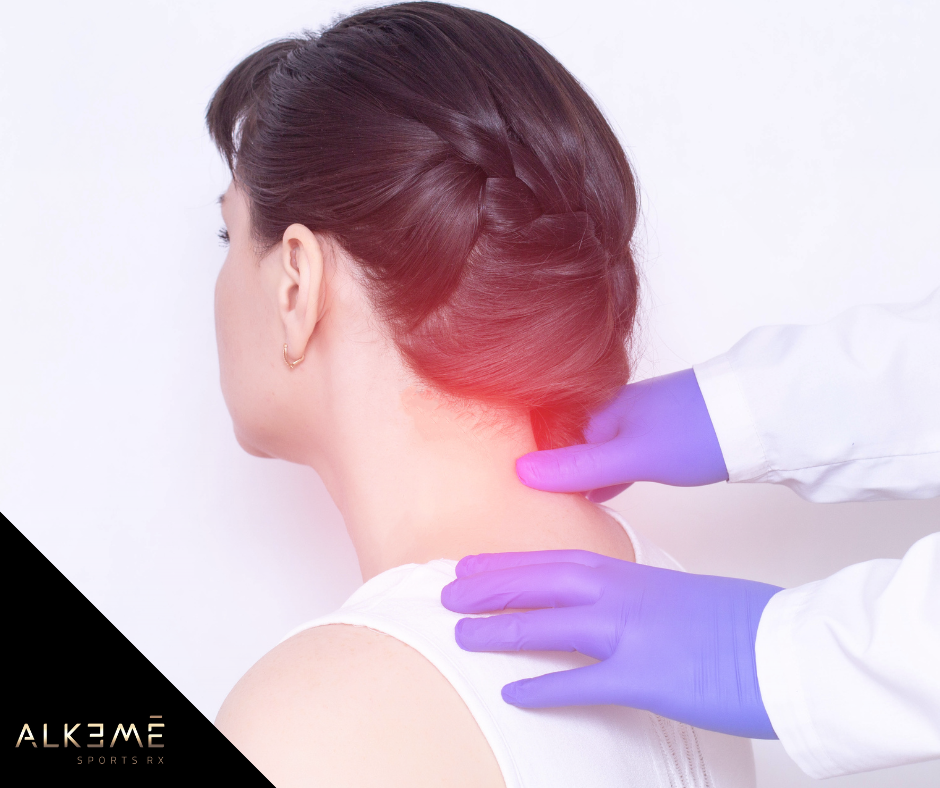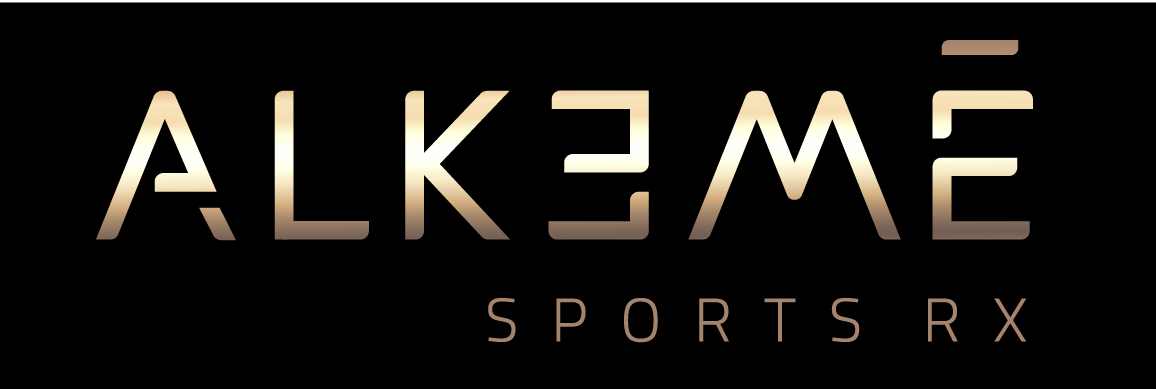A pinched nerve can cause significant discomfort, leading to pain, numbness, and tingling sensations that can disrupt daily life. Whether it's due to a herniated disc, muscle imbalances, or spinal stenosis, physical therapy can offer a non-invasive solution for relief and recovery. At Alkemē Sports Rx, located in Davie and Brickell, our expert physical therapists are skilled in diagnosing and treating pinched nerves, helping patients regain their quality of life. In this blog, we'll explore how physical therapy works to alleviate pinched nerve symptoms and why athletes and active individuals should consider this approach.
How Physical Therapy Can Relieve Pinched Nerve Pain at Alkemē Sports Rx in Davie & Brickell
How Physical Therapy Can Relieve Pinched Nerve Pain at Alkemē Sports Rx in Davie & Brickell
Understanding Pinched Nerves
A pinched nerve occurs when surrounding tissues, such as bones, cartilage, muscles, or tendons, apply excessive pressure on a nerve. This pressure disrupts the nerve's function, leading to pain, weakness, or numbness in the affected area. Common causes of pinched nerves include herniated discs, bone spurs, muscle tightness, or repetitive movements.

How Physical Therapy Helps Relieve Pinched Nerve Symptoms
Physical therapy takes a comprehensive approach to treating pinched nerves. It focuses on identifying the underlying causes of the issue and developing personalized strategies for pain management, strengthening the affected areas, and reducing the risk of future occurrences. Our approach to physical therapy for pinched nerves involves:
Comprehensive Assessment and Diagnosis
- Initial Evaluation: At Alkemē Sports Rx, our physical therapists conduct a thorough assessment to identify the specific nerve affected and the underlying causes of compression. This evaluation includes a review of the patient's medical history, a physical examination, and, if necessary, collaboration with other healthcare professionals for diagnostic imaging.
- Customized Treatment Plan: Based on the assessment, a personalized treatment plan is developed, targeting the unique needs and goals of the patient. This plan focuses on reducing pressure on the nerve, relieving symptoms, and restoring normal function.
Pain Relief and Symptom Management
- Manual Therapy: Techniques such as soft tissue mobilization, joint mobilization, and myofascial release are used to alleviate muscle tension and improve circulation. These methods help reduce pain and inflammation around the affected nerve.
- Modalities: Physical therapists may use modalities like heat therapy, ice therapy, ultrasound, and electrical stimulation to alleviate pain, reduce swelling, and promote healing.
Restoring Mobility and Function
- Stretching and Flexibility Exercises: Targeted stretching exercises help relieve pressure on the affected nerve by improving flexibility in the surrounding muscles and tissues. This is particularly beneficial for conditions like sciatica, where the sciatic nerve is often pinched.
- Range of Motion Exercises: These exercises focus on restoring normal movement in the affected area, whether it's the neck, back, shoulder, or another part of the body.
Strengthening and Stabilization
- Core Strengthening: Strengthening the core muscles can provide better support for the spine and reduce the risk of nerve compression. Core exercises are especially important for patients with pinched nerves in the lower back.
- Postural Correction: Poor posture can contribute to nerve compression. Our therapists educate patients on proper body mechanics and provide exercises to correct posture, reducing strain on nerves.
Functional Training and Activity Modification
- Functional Exercises: These exercises are designed to improve daily function and prevent further injury. For example, patients with a pinched nerve in the shoulder may work on strengthening exercises and techniques to improve shoulder mechanics.
- Education and Self-Care: Patients are taught self-care strategies, including proper ergonomics, activity modifications, and stretches they can perform at home to maintain progress and prevent recurrence.
Why Athletes and Active Individuals Benefit from Physical Therapy for Pinched Nerves
Athletes and active individuals benefit significantly from physical therapy for pinched nerves due to their heightened susceptibility to such issues. Continuous engagement in repetitive movements, overuse of specific muscles, strained muscles, and the physical demands of rigorous exercise routines can lead to nerve impingement. By incorporating physical therapy into their routine, athletes receive targeted treatment to address these issues. Physical therapy at Alkemē Sports Rx in Davie and Brickell can help:
- Prevent Recurrence: By addressing the underlying causes, such as muscle imbalances or poor posture, physical therapy reduces the risk of future nerve compression.
- Enhance Performance: By improving mobility, strength, and flexibility, physical therapy helps athletes perform at their best without pain or limitation.
- Facilitate Safe Return to Activity: Our therapists guide patients through a safe and gradual return to their sports or activities, ensuring they do not exacerbate their condition.
Why Choose Alkemē Sports Rx in Davie & Brickell?
- Expertise in Neuromuscular Conditions: Our team has extensive experience in treating pinched nerves and other neuromuscular conditions. We use evidence-based techniques to provide effective relief and recovery.
- Individualized Care: At Alkemē Sports Rx, we offer personalized treatment plans tailored to each patient's specific condition and lifestyle, ensuring the best possible outcomes.
- Convenient Locations: With clinics in Davie and Brickell, we provide accessible, high-quality care for patients across South Florida, helping them get back to their active lives.
Are you experiencing pain or discomfort due to a pinched nerve?
Don't let it hold you back. Visit Alkemē Sports Rx in Davie and Brickell to receive expert physical therapy care tailored to your needs. Schedule your consultation today and start your journey to pain relief and recovery.
